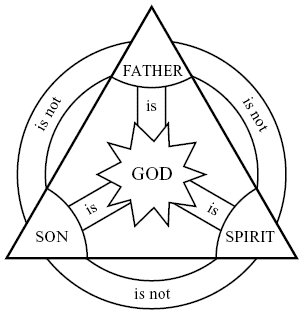Is the Holy Spirit God?
Is the Holy Spirit God? Exploring the Biblical Evidence
From ancient heretical sects such as the Arians—who denied the full deity of the Holy Spirit—to modern-day denials, the Spirit’s divinity has sadly been a point of controversy throughout church history. Blasphemous ideas portray the Spirit as an impersonal force, a created being, or something less than fully God. But given the Spirit’s vital role across creation and redemption, having a right doctrine of His divine identity and personality is of utmost importance.
The Holy Spirit is an integral part of the Christian doctrine of the Trinity, yet many people have questions about the Spirit’s nature and identity. Is the Holy Spirit a divine being, equal to God the Father and God the Son? Or is the Spirit something less than fully God? These are important questions that go to the heart of Christian theology. In this post, we’ll explore biblical evidence for the deity of the Holy Spirit.
The Work of the Holy Spirit A survey of the Spirit’s works reveals why He must be recognized as God Himself, co-equal with the Father and Son. In creative acts, the Spirit hovered over the primordial waters energizing all life into being (Genesis 1:2, Job 26:13). In salvation, the Spirit convicts the world of sin, draws people to Christ, and causes spiritual rebirth (John 16:8-11, John 3:5-8). He permanently indwells believers, guiding them into truth, empowering godly living, interceding in prayer, cultivating Christlike character, and helping us understand and obey Scripture (John 14:26, Galatians 5:16, Romans 8:26-27, 1 Corinthians 2:10-16). Truly, the entire arc of redemption fundamentally involves the Holy Spirit’s work from start to finish.
When you consider the Spirit’s vital activity in literally every sphere of creation, salvation, sanctification, and illumination—it’s clear He is no insignificant or created entity. As we’ll explore below, the biblical evidence clearly ascribes to the Holy Spirit the very attributes, works, and identity that belong only to the one true God.
The Holy Spirit Possesses Divine Attributes One of the key lines of evidence for the Holy Spirit’s divinity is that the Bible ascribes to the Spirit attributes that belong only to God. For example:
- Omnipresence: In Psalm 139:7-10, David declares there is no place he can go to escape the presence of God’s Spirit. This indicates that the Holy Spirit is omnipresent—present everywhere at the same time, as only God can be.
- Omniscience: The apostle Paul tells the Corinthians the Spirit searches all things, even “the depths of God” (1 Corinthians 2:10-11). To search the infinite depths of God requires omniscience—complete and total knowledge.
- Eternality: In Hebrews 9:14, the Spirit is described as the “eternal Spirit.” Only God possesses the attribute of eternality—having neither beginning nor end.
The Holy Spirit Does Divine Works Not only does the Spirit possess divine attributes, but He also does works that can only be accomplished by God:
- Creation: Genesis 1:2 says the Spirit of God was “hovering over the waters” at the beginning, participating in the creation of the universe. Numerous other passages also ascribe creation to the Spirit’s work (Job 26:13, Psalm 104:30).
- Giving Life: In John 6:63 Jesus says, “It is the Spirit who gives life.” The ability to create and sustain physical life is unique to God.
- Inspiring Scripture: 2 Peter 1:21 states “no prophecy was ever produced by the will of man, but men spoke from God as they were carried along by the Holy Spirit.” The Spirit is the divine source of the scriptures.
The Holy Spirit is Identified as God Perhaps most directly, there are places in Scripture where the Holy Spirit is explicitly identified as God:
- Acts 5: Peter says Ananias had lied to the Holy Spirit, and then declares “You have not lied to men but to God.”
- 1 Corinthians 3:16: Our bodies are called the “temple of God” specifically because “the Spirit of God dwells in you.”
- 2 Corinthians 3:17-18: The Lord is equated with the Spirit: “Now the Lord is the Spirit, and where the Spirit of the Lord is, there is freedom.”
Conclusion: The biblical evidence clearly ascribes to the Spirit attributes, works, and identity that belong only to God Himself. From eternity past to the creation of the universe to the inspiration of Scripture, the Holy Spirit has acted as God in concert with the Father and Son. The inescapable conclusion is the Holy Spirit is fully God—the third person of the triune Godhead, and thus worthy of our worship and obedience.
While the Father and Son rightly receive worship and adoration, the Holy Spirit often gets less attention and appreciation from believers. It’s good for us to give Him His rightful reverence. When was the last time we thanked and glorified the Spirit for His loving, ongoing work in our lives and in the world? The Spirit deserves co-equal honour with the Son and Father as the third Person of the Triune Godhead.
Related Reads:
Editor's Pick

Christian Obedience: God’s Empowerment or an Act of Our Will?
Every Christian knows the struggle. You’re fighting a besetting sin—again. You’ve resolved to do better—again. And you’re wondering: Should I [...]

The Throne-Room Vision: Who Did Isaiah See?
The scene is unforgettable: Isaiah stands in the temple, and suddenly the veil between heaven and earth tears open. He [...]

The Angel of the Lord: Can We Be Certain It Was Christ All Along?
Throughout the Old Testament, a mysterious figure appears: the Angel of the LORD. He speaks as God, bears God’s name, [...]
SUPPORT US:
Feel the Holy Spirit's gentle nudge to partner with us?
Donate Online:
Account Name: TRUTHS TO DIE FOR FOUNDATION
Account Number: 10243565459
Bank IFSC: IDFB0043391
Bank Name: IDFC FIRST BANK






